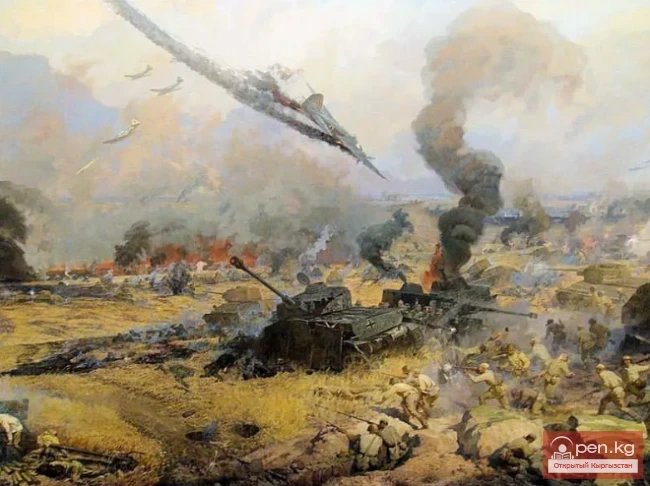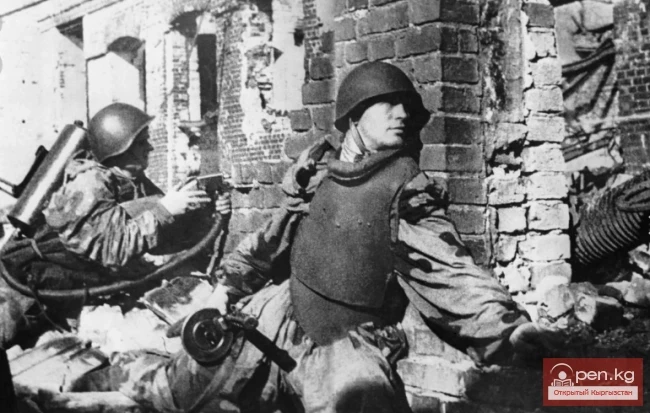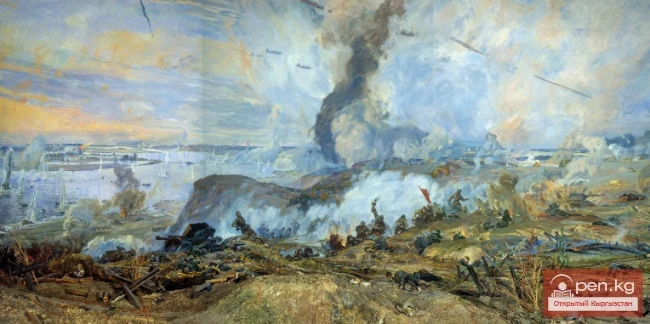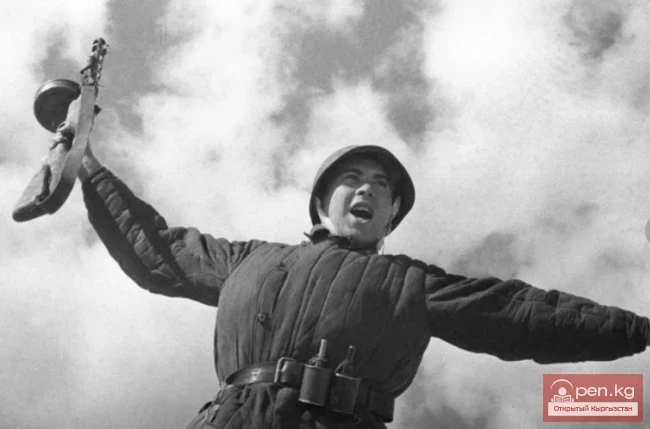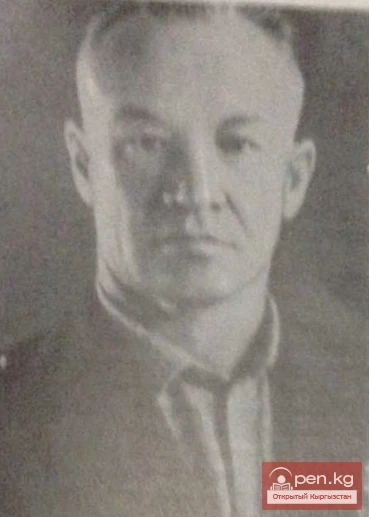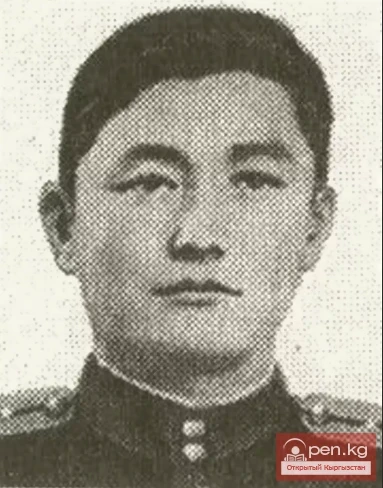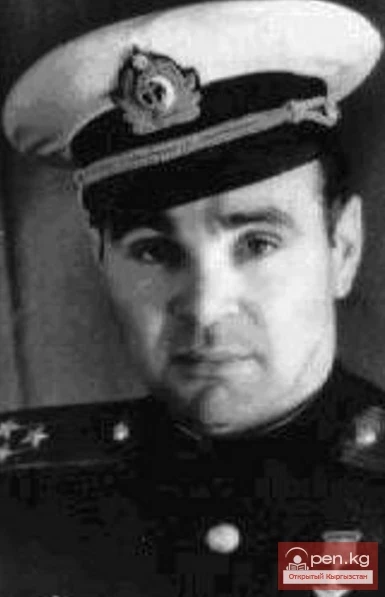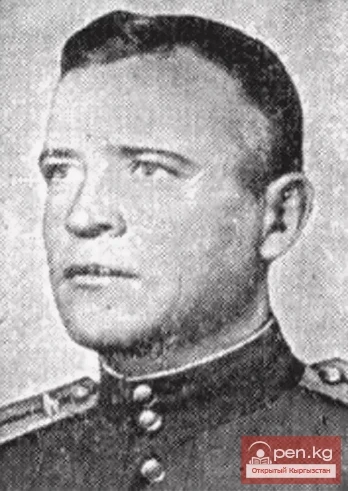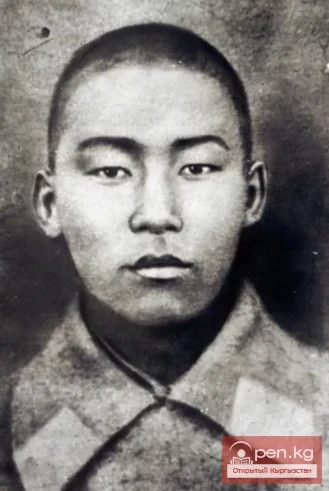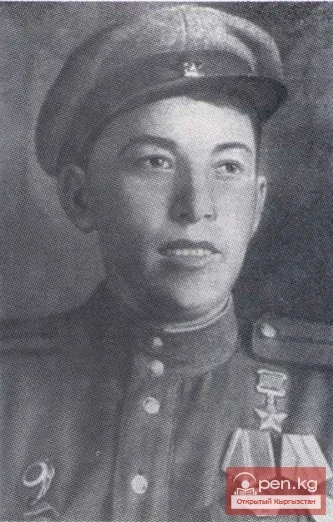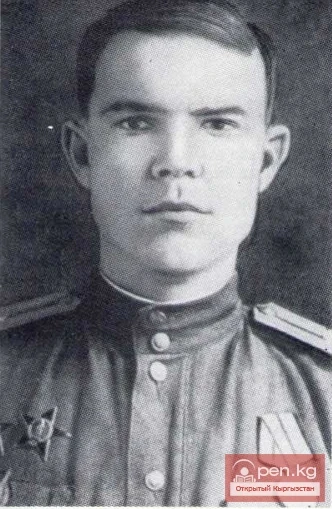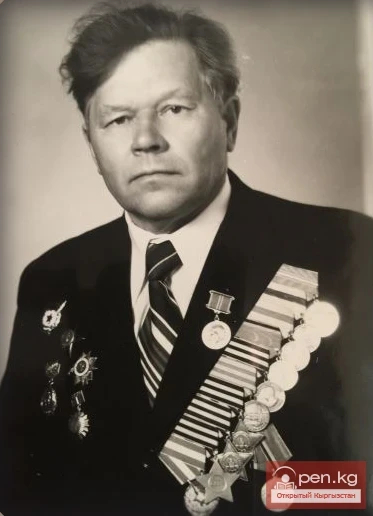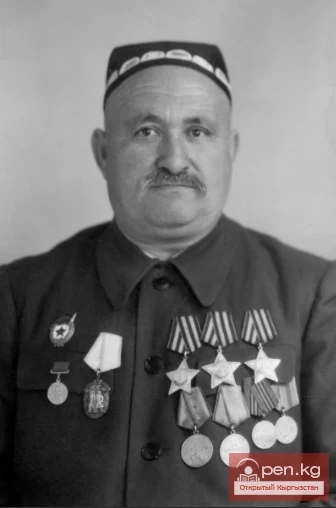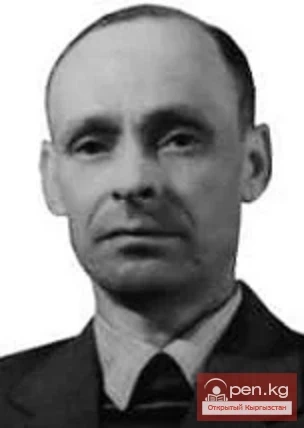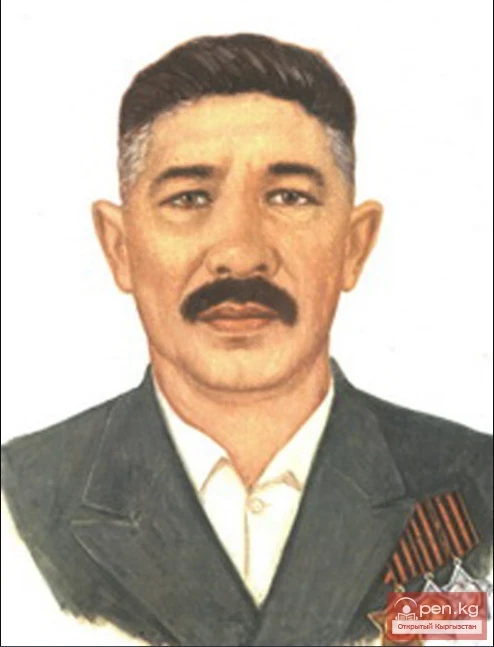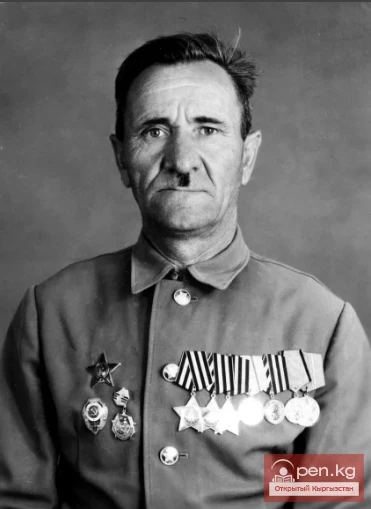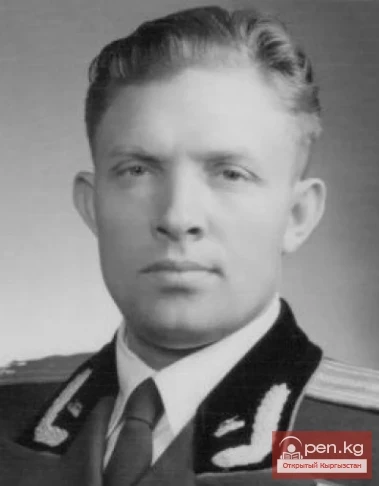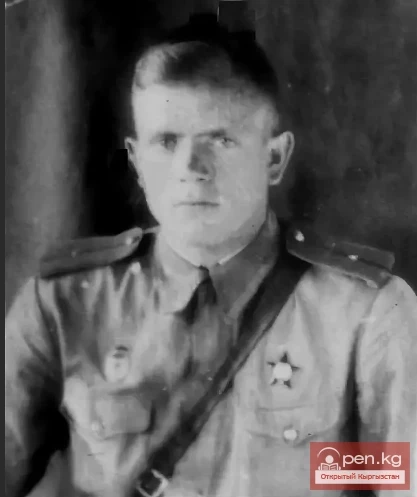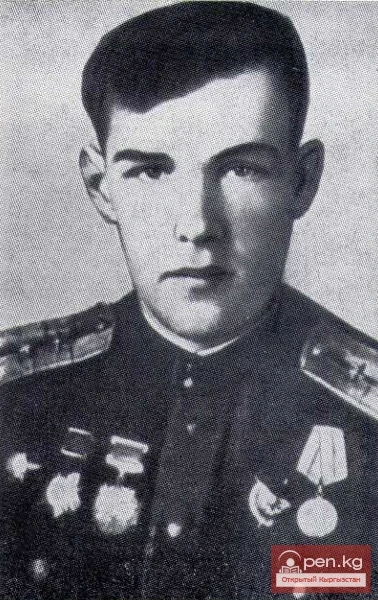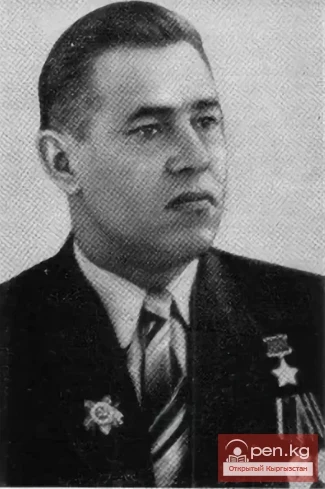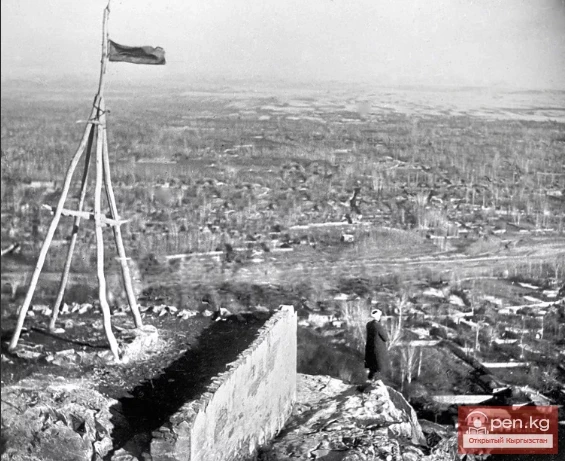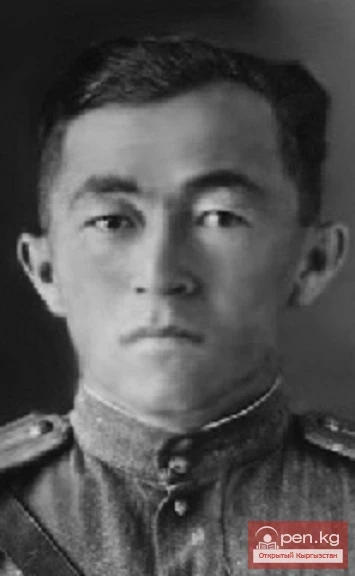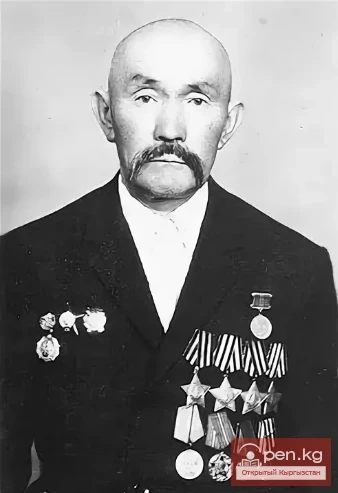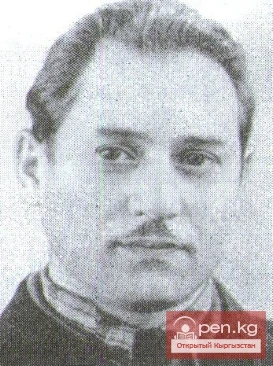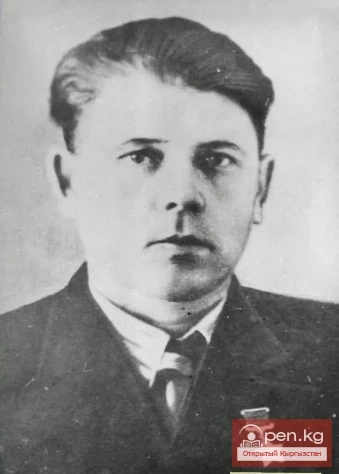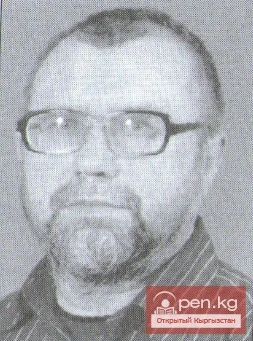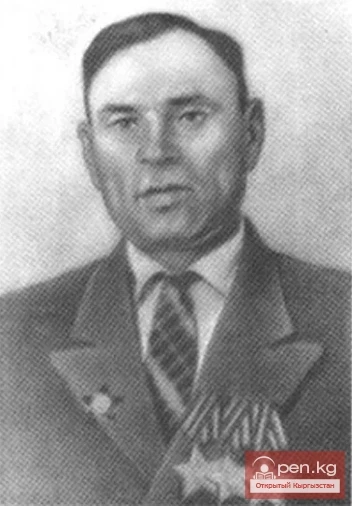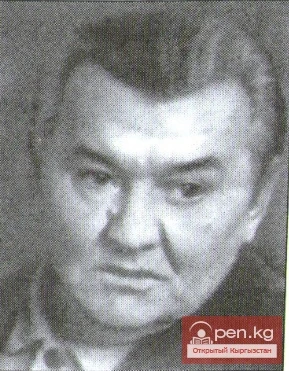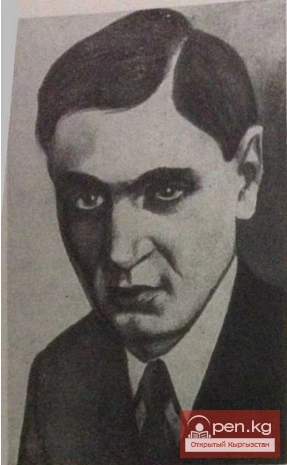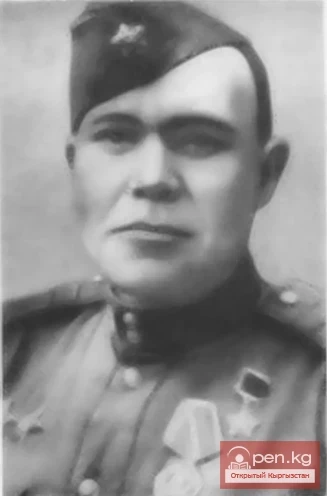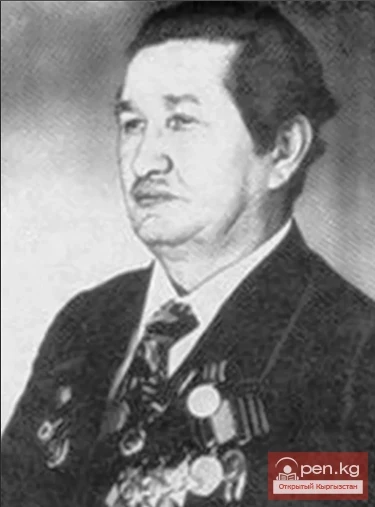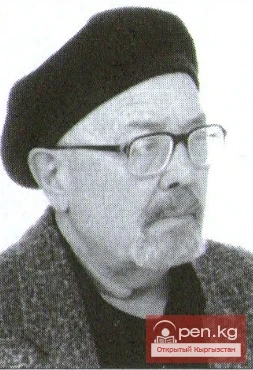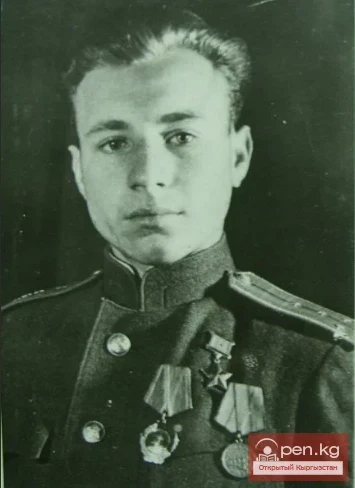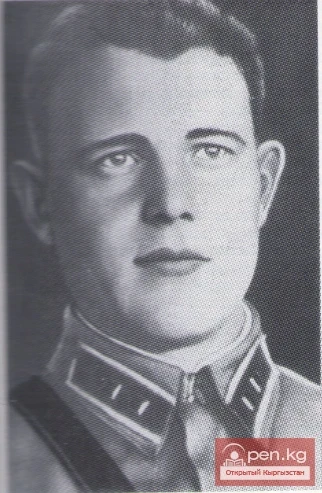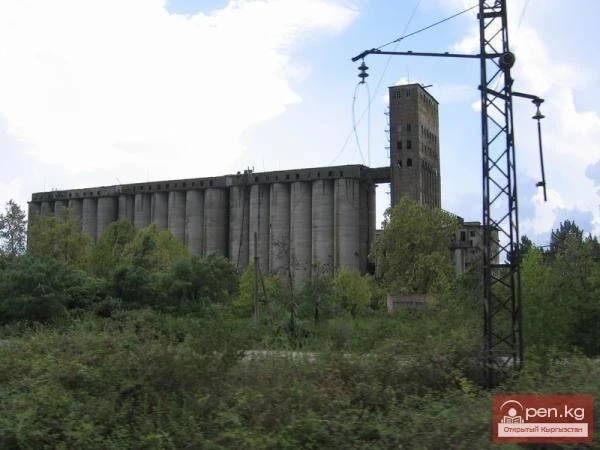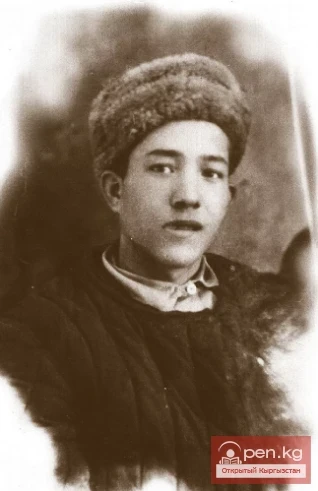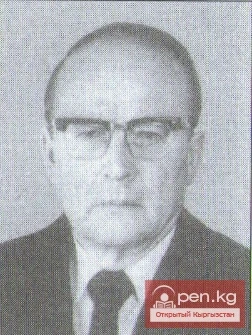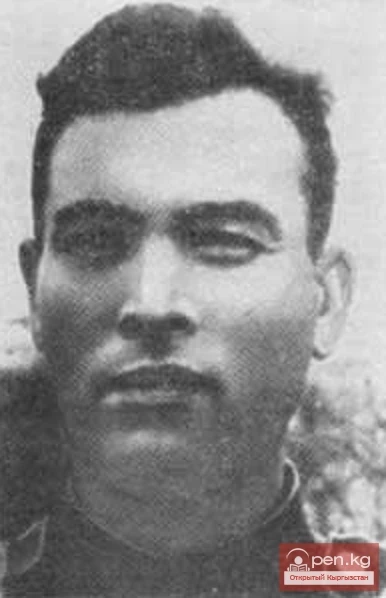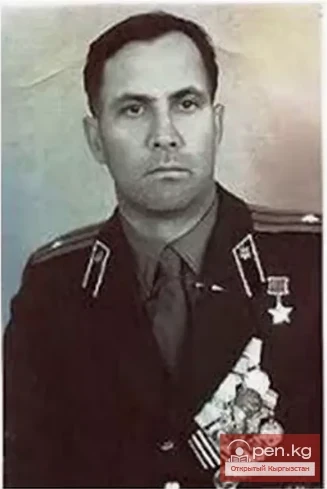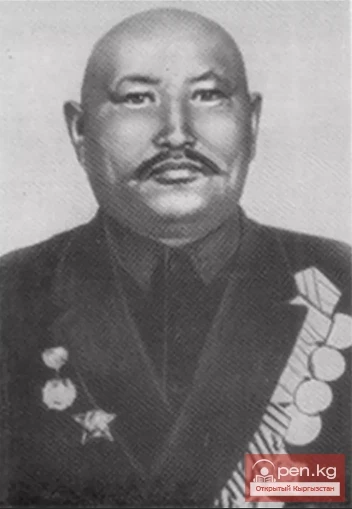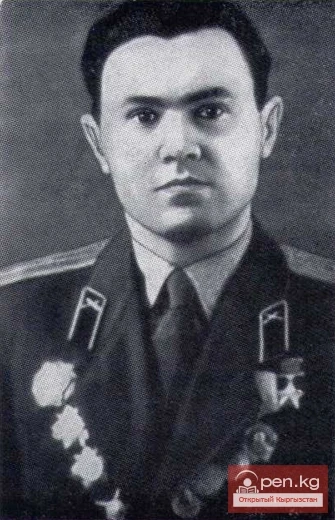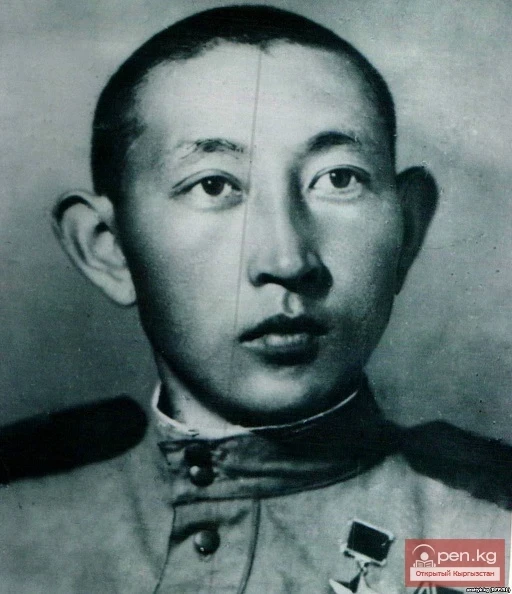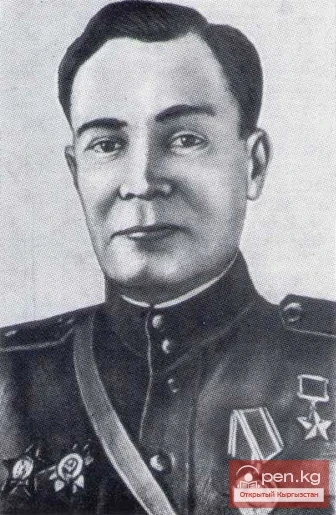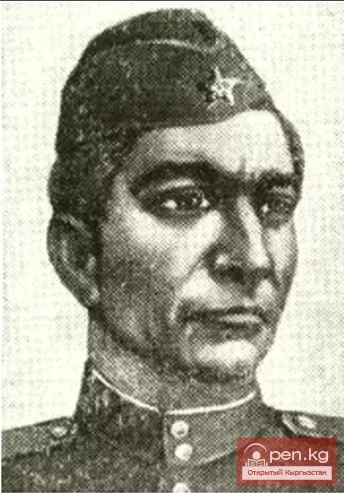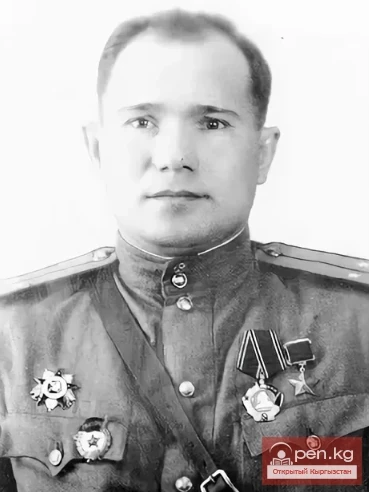
Hero of the Soviet Union Nikolенко Pavel Fedorovich
Pavel Fedorovich Nikolенко was born in 1918 in the village of Chaldovar, Panfilov District, Kyrgyz SSR.
He was Ukrainian. A member of the Communist Party of the Soviet Union. Before the war, he worked as an accountant for the Kum-Aryk collective farm. In 1941, he was drafted into military service and enrolled in a military technical school. He served as a Guards lieutenant and commander of a rifle company.
After graduating from the school, P. F. Nikolенко fought as part of the Northwestern Front. He participated in the battle near Oryol. He performed a heroic feat on October 6, 1943, in a battle north of the village of Gubino.
For his courage and bravery displayed in this battle, P. F. Nikolенко was awarded the title of Hero of the Soviet Union on October 17, 1943. His combat achievements during the war were also recognized with the Order of the Patriotic War II class and many medals.
Demobilized due to health reasons, P. F. Nikolенко lived and worked in Przhevalsk and later in Kharkov.
He passed away in 1983.
GUARDS' HANDWRITING
...On October 6, 1943, there were no significant changes on the front; 32 enemy tanks were destroyed, and in aerial battles and anti-aircraft fire, 44 enemy planes were shot down. That was about it. Indeed, on that autumn day, there was relative calm on the front. The process of bringing up the rear units that had fallen behind during the rapid advance of our troops was coming to an end. The next day, October 7.
The Red Army resumed offensive battles against the German-fascist troops along the entire front from Vitebsk to the Taman Peninsula.
And yet, let us return to the day of October 6, for it, despite its unheroic ordinariness, left, like any of the 1418 days of the war, an indelible mark in the annals of the Great Patriotic War, becoming an incredibly difficult, selfless step on the path to Victory. On that day, one of the battalions of the 12th Airborne Rifle Regiment, north of the village of Gubino, on the right bank of the Dnieper, engaged in an unequal battle with superior enemy forces. The selfless courage, fury in the fight against the enemy, and unyielding Soviet character were demonstrated in this deadly clash by the soldiers of the third rifle company under the command of Guards Lieutenant Pavel Fedorovich Nikolенко. They took the brunt of the German attack, and despite significant losses, they held their ground and did not retreat.
The combat experience, military skill, discipline, heroism, and organization of the third rifle company had long served as a model for the entire regiment. It was no coincidence that the guards of the third were always given the most responsible assignments by the command and fought on the most decisive fronts. This was also the case, for example, in August 1943 during the liberation of the city of Oryol. They had to act in a difficult situation.
The Germans fortified the streets of the city, mined and blew up houses, and placed machine gunners in basements and attics of stone buildings, offering desperate resistance. But with such a fearless, keenly situationally aware, and quick decision-making commander as Pavel Fedorovich Nikolенко, any difficulties seemed to become easier. The soldiers believed in their company commander and were ready to follow him into fire and water...
How many fates were drastically changed by the war, how many were dictated by its cruel discretion! Did Pavel Fedorovich, who worked as an accountant in a collective farm before the war, think that he, a man of a purely peaceful profession, would discover extraordinary abilities as a commander within himself? No. All the thoughts of the young collective farm economist were then directed towards the further development of the collective farm, strengthening its economy. The third five-year plan was underway.
The country entered a new phase - the completion of the construction of a socialist society. The tense plans for transforming the countryside adopted by the XVIII Congress of the VKP(b) before the war inspired selfless labor, opening up brilliant prospects for self-assertion, daring, and exploration for the youth. But the war broke out, and many from Pavel Fedorovich Nikolенко's generation had to put aside their peaceful creative endeavors. In the harsh year of 1941, Pavel Fedorovich became a student at a military technical school.
The young officer came to the active army with good theoretical training, and in the first battles, he demonstrated excellent practical qualities. The front-line biography of Guards Lieutenant Nikolенко is closely intertwined with pivotal events in the history of the Great Patriotic War, such as the Battle of Kursk, where he became a communist after a fierce battle near the station of Ponyri, forever linking his fate with Lenin's party; and the swift, stunning crossing of the Dnieper that shocked the Germans. At that time, a group of soldiers, led by Nikolенко, emerged from the waters of the Dnieper under the hurricane fire of the enemy, to secure themselves on its right bank.
Like reflections of past battles, one after another, the combat awards lit up on the commander's chest — a testament to his courage and bravery. But all this was a prelude to the main feat, marked by the highest award of the Motherland — the Order of Lenin and the medal "Gold Star".
So, let us return to the day of October 6, 1943, which, as the annals of the war testify, did not bring significant changes to the front and was marked only by battles of local significance. What were these battles like? I want to tell about them without embellishment using the words of the award sheet, signed by the commander of the 12th Airborne Guards Rifle Regiment, Guards Colonel Yakushenko, and submitted through the channels on October 10, 1943.
“In a fierce battle north of the village of Gubino, Lieutenant Nikolенко's company on October 6, 1943, took the brunt of the numerically superior counterattacking Germans. With the cry: 'For the Motherland! Follow me, forward!' Nikolенко led the company into an attack against the enemy. And the guards, inspired by the heroic example of their commander, rushed into battle. In hand-to-hand combat, Nikolенко stabbed about ten fascists with his bayonet. The enemy's attack faltered, and 32 German corpses remained on the battlefield. Then the fascists decided to encircle the brave guards and began to flank the company. At that moment, the company commander was incapacitated, and Lieutenant Nikolенко unhesitatingly took command of the battalion. He lay down behind a machine gun and began to shower the advancing enemy with a hail of bullets, shifting fire from one flank to the other. And this time, the enemy's ranks faltered. For three hours, Nikolенко repelled nine counterattacks but did not retreat a single meter. The enemy, having suffered heavy losses, began to retreat hastily, but Nikolенко boldly pushed out from his combat formations and again led the battalion against the enemy.
By his feat, Comrade Nikolенко enabled the regiment to accomplish a responsible combat mission.”
Of course, it was difficult to fit all the details and specifics of the deadly clash of the airborne infantry company with the hordes of German-fascist invaders into the concise lines of the award sheet, but even in the harsh strictness of this genuine war document, the guards' handwriting of the paratroopers who stood up to defend the Motherland is clearly visible.
For his displayed courage and bravery, and skillful leadership of personnel in a complex combat situation, eleven days after that memorable battle, Guards Lieutenant Pavel Fedorovich Nikolенко was awarded the title of Hero of the Soviet Union by the decree of the Presidium of the Supreme Soviet of the USSR.
...It so happened that Pavel Fedorovich met Victory Day in Przhevalsk. He was severely wounded in battles near Vinnitsa and could no longer continue his combat path with his military unit, but he remained in the ranks: he trained students in military affairs at the Przhevalsk Agricultural Technical School, continued his education, and engaged in active public work, which became a continuation of his military feat.
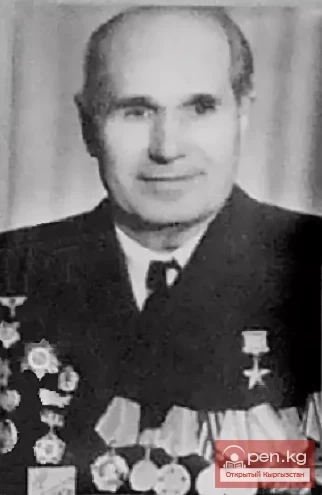
“I am always among the younger generation, and I see the meaning of life in this. For the desire to ignite in our successors the fire of boundless courage and love for their country, the readiness to give all their strength, all the warmth of their hearts to fulfill the most difficult tasks of the party and the Motherland does not fade in my heart,” Pavel Fedorovich Nikolенко wrote in one of his letters to a comrade-in-arms.
In these lofty words, there is not a trace of self-admiration. They express the need instilled by the party in a communist to always and everywhere selflessly and faithfully serve the people, to be true to Marxist-Leninist ideals until the last breath.
V. ZAPOLSKY
